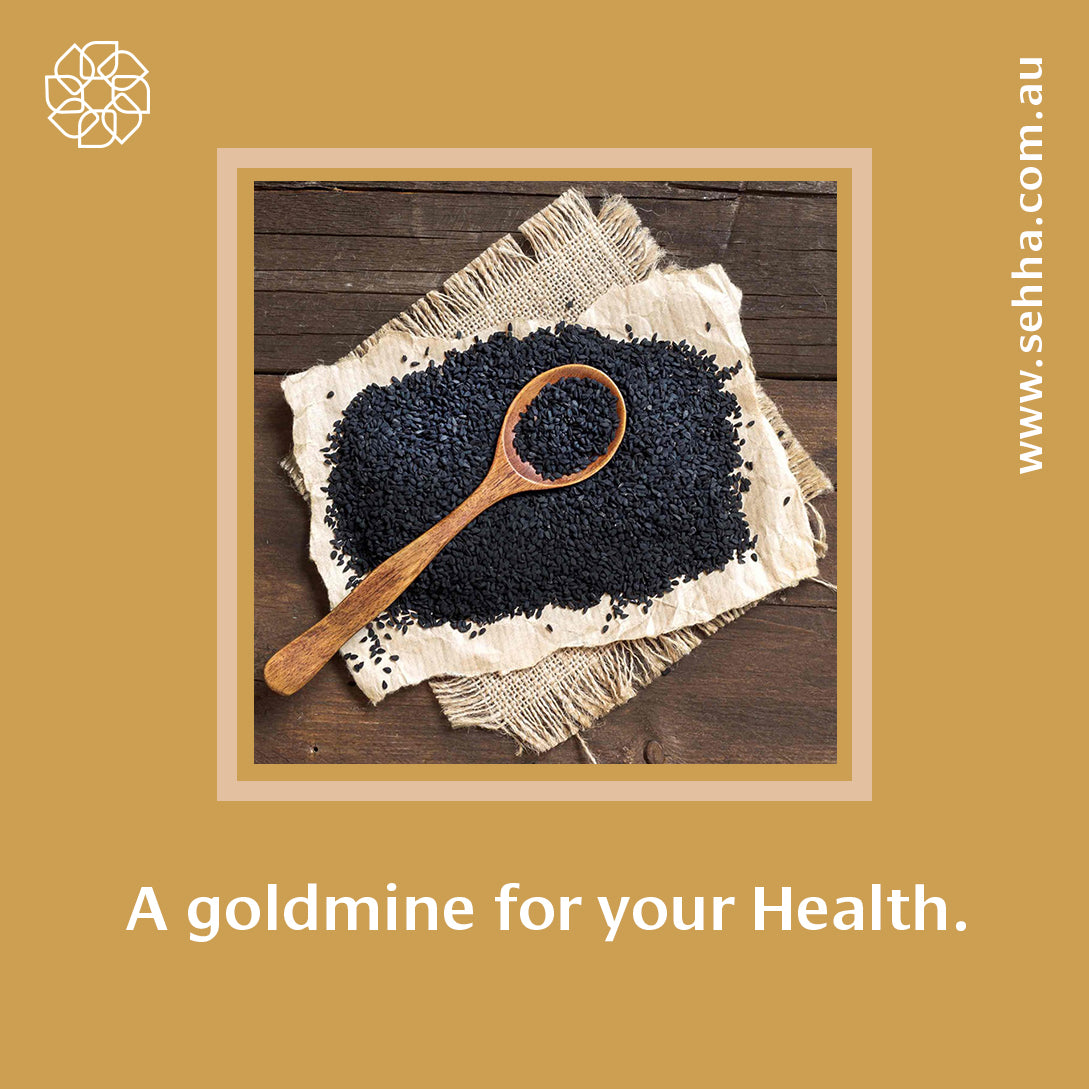
Top 5 Benefits of Black Seed (Nigella Sativa) - Part 1
The COVID-19 pandemic has highlighted to all of us how vulnerable and unprepared we are. And what better way to become more prepared to face pathogens than tapping into nature and using some of its countless herbal remedies?
One of the lesser known natural remedies is Black Seed, scientifically known as Nigella Sativa. Also referred to as black cumin, black caraway or fennel flower1, black seed has recently received a lot of attention due to emerging studies that have shown a wide array of benefits to people who consume it. But its true popularity only came with new research indicating black seed oil might help with weight loss2 3.
Black seed is a small annual plant with blue or white flowers and black-coloured seeds. In the United States, it is listed as GRAS (“Generally Recognized as Safe”) when used as a spice/natural seasoning and flavouring 4.
So what are the top 5 benefits of black seed and why should you consider giving it a try?
- Potent bioactive compounds. Arguably the most researched N. sativa active compounds are thymoquinones, which have been shown to promote brain health and improve outcomes in several types of cancer due to their antioxidant and anti-inflammatory effects2. However, this small plant also packs a large number of bioactive molecules such as sterols, saponins, volatile oils, novel lipids and fatty acids as well as alkaloids and phenolic compounds with potential plant hormetic activity5.
- Obesity. Studies have shown that in people who are overweight or obese, black seed oil or powder extract may improve weight loss. One randomized controlled clinical trial (one of the most rigorous types of study) carried out over 8 weeks included 90 obese women aged 25-50 years old who were given a low-calorie diet combined with either a placebo or 1 gram of black seed oil per meal (3 grams a day). By the end of the 8 weeks, the group taking the black seed oil had lost significantly more weight than the placebo group, and had also shown significant improvements in their LDL cholesterol and triglyceride levels. These promising results highlight the need for more studies that can assess the safety of using black seed oil long-term6.
To be continued...
Before trying black seed or black seed oil, consult with your healthcare provider to establish the best dose for you.
By Andreea Nitescu for Sehha
RD MSc BSc
References
- United States Department of Agriculture. Taxon: Nigella sativa L. [Online]. Available from: https://npgsweb.ars-grin.gov/gringlobal/taxon/taxonomydetail?id=25337.
- McGrane K. What Is Black Seed Oil? All You Need to Know. [Online], 2020. Available from: https://www.healthline.com/nutrition/black-seed-oil.
- Amin F, Islam N, Anila N, Gilani AH. Clinical efficacy of the co-administration of Turmeric and Black seeds (Kalongi) in metabolic syndrome - a double blind randomized controlled trial - TAK-MetS trial. Complement Ther Med. 2015 Apr;23(2):165-74.
- US Food & Drug Administration. CFR - Code of Federal Regulations Title 21. [Online], 2020. Available from: https://www.accessdata.fda.gov/scripts/cdrh/cfdocs/cfcfr/cfrsearch.cfm?fr=182.10.
- Yimer EM, Tuem KB, Karim A, Ur-Rehman N, Anwar F. Nigella sativa L. (Black Cumin): A Promising Natural Remedy for Wide Range of Illnesses. Evid Based Complement Alternat Med.; 2019: 1528635.
- Mahdavi R, Namazi, N, Alizadeh M, Farajnia S. Effects of Nigella sativa oil with a low-calorie diet on cardiometabolic risk factors in obese women: a randomized controlled clinical trial. Food Funct. 2015 Jun;6(6):2041-8.

